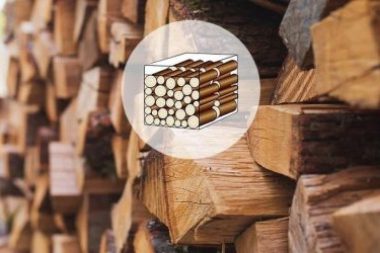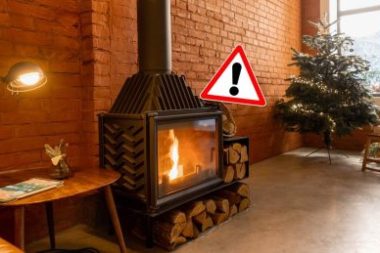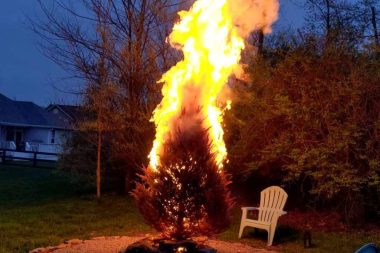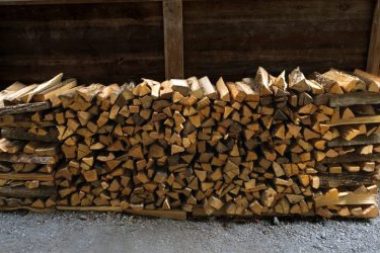Whether you are a DIY expert or a handyman, improvising as a chimney sweep is never without risks. What does your insurer think about it?
Summary
Contents
Regularly maintaining your chimney yourself
If a heavily clogged chimney is dangerous (risk of fire or carbon monoxide poisoning), even a slightly clogged chimney is never desirable.
An improperly maintained chimney will result in poor draft and cause you to spend more firewood.

- How to store firewood outside?
- Methods for drying your firewood before winter
It is therefore better to maintain it regularly, in addition to the mandatory annual or biannual chimney sweeping. For this, you have two options:
Chemical chimney sweeping
This type of sweeping does not replace mechanical sweeping, but it is complementary. To perform this type of maintenance, a combustible powder or a chimney sweeping log is used.
These products release fumes that make the formed residues more friable (but also less flammable) over time in stove or chimney flues.
Be careful, you must clean your flues with a chimney brush after this operation to remove dislodged residues that could block your flues.
You must be very careful with this type of sweeping: if you have any doubts, call in a professional.

Mechanical chimney sweeping
Also known as manual sweeping, mechanical sweeping is the traditional method of cleaning any stove, chimney, or wood boiler flue.
It involves removing the accumulated soot, dirt, and dust after several fires using a chimney brush.
Only this type of sweeping allows for optimal use of a heating appliance, and only when performed by a professional can it ensure that your appliance poses no danger when used.
- 10 types of wood to absolutely avoid in your chimney!
- Which types of firewood to choose?
If I sweep my chimney myself, am I covered by my insurance?
Out of economy or organization concerns, one may be tempted to sweep their stove or chimney themselves. While this may be technically possible, a DIY sweeping will never be valid in the eyes of the law.
In the absence of the mandatory annual sweeping (two sweepings in certain cities including Paris), you may therefore incur a fine, which can amount to 450 euros.
So you cannot skip it! If, despite everything, you believe that you know how to properly perform a sweeping yourself (and you are not afraid of inspections), know that your insurer will also hold you accountable in case of a fire.
In fact, if you are the victim of a chimney fire, your insurance company is entitled to ask for a chimney sweeping certificate. In its absence, your insurer may deem you negligent and refuse to cover part or… all of your expenses.









